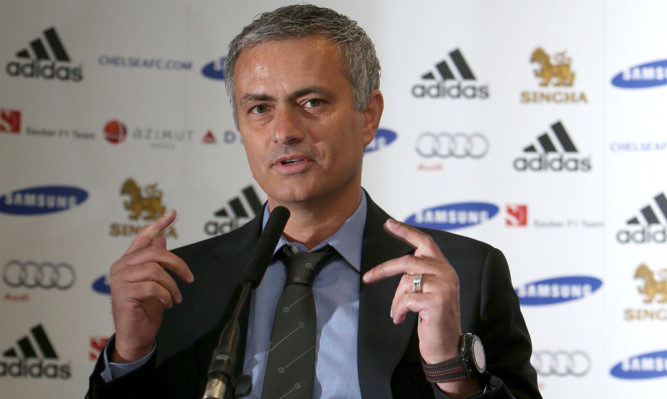
The Chelsea manager is set wreak havoc in the Premier League this season.
Mourinho has already begun his war with Manchester’s new bosses David Moyes and Manuel Pellegrini.
In the well-qualified opinion of former Norwich, Spurs and Northern Ireland midfielder Paul McVeigh, there can only be one winner.
Since he finished playing, McVeigh has studied football’s cerebral side.
He co-founded ThinkPRO, which offers psychological support to sportspeople and has just published a book about the psychology of football: The Stupid Footballer Is Dead.
“I’ve sent a copy to Jose,” revealed McVeigh. “It should be sitting on his desk when Chelsea get back from their pre-season tour.
“Eventually I intend to have the book distributed to all Premier League managers.
“But I thought of Jose first. He will appreciate it more than most as he knows all about the psychological side of the game.
“Sir Alex Ferguson was once the master of mind games, but I believe Mourinho is the best.
“He had the upper hand over Fergie when he was here the first time, and now Sir Alex has retired, Jose is clearly number one.
“Everything he says is studied and deliberate. He’s already started on Moyes and Pellegrini and you couldn’t possibly misconstrue it as being accidental.
“He’s unsettled Moyes on Wayne Rooney and had a dig about him not winning trophies at Everton.
“Of course he dressed it up by claiming he was ‘saying something nice’, but it was a clear put-your-medals-on-the-table challenge. He’s aiming to rattle his rival and wind him up.
“Mourinho also said Pellegrini needs to win trophies more than he does. That deflects pressure on to City, and away from Chelsea.
“It’s a masterclass in psychology, and we’re going to see more of it than ever this season.
“The best managers always understand the mental side. Brian Clough was a genius at it.
“Fergie was brilliant at instilling that never-say-die spirit into his players. Teams would arrive at Old Trafford beaten before they kicked off.
“But Mourinho gets it more than anybody. He uses it to his advantage, and he’s taken mind games to a new level.
“Winning them is imperative and I believe that means Chelsea will win the title.”
McVeigh confesses he’s “flabbergasted” that football hasn’t bought into the psychological side the way most other sports have.
“Why didn’t Andy Murray win a Grand Slam before he linked up with Ivan Lendl?” he says. “He had all the shots but didn’t have the right mindset.
“Last season my own company worked with Norwich City’s youngsters.
“On paper they shouldn’t have been able to live with some of their opponents in the FA Youth Cup, but they beat Chelsea in the Final.
“This a multi-billion-pound industry that has made huge strides in technology, nutrition and sports science, yet it still largely ignores the one absolutely vital component of any sport.”
The Stupid Footballer (Bloomsbury). Details from: paulmcveigh.co.uk

Enjoy the convenience of having The Sunday Post delivered as a digital ePaper straight to your smartphone, tablet or computer.
Subscribe for only £5.49 a month and enjoy all the benefits of the printed paper as a digital replica.
Subscribe